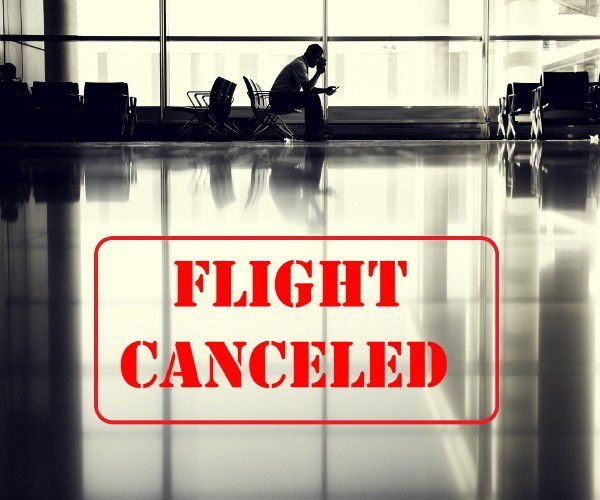How to choose the right ravel insurance for greater certainty in uncertain times

As the coronavirus has completely affected our lives, this pandemic has disrupted existing and future travel plans. Therefore, all of this has turned greater attention to travel insurance. Such protection provides a safety net so you can step out with confidence, covering big financial risks that you don’t want to bear alone.
Travel insurance provides a safety net so you can step out with confidence. It may not be needed for inexpensive trips, but it can provide a sense of security when you pre-pay for pricey reservations… think international trips, luxury travel and/or big family trips where you might plan on spending maybe $10,000, $15,000 or more – meaning this is something worth insuring.
Here are six of the most common types of coverage:
1. Medical travel insurance

Even if you think that your health is perfect, there’s always the chance of twisting your ankle while climbing the stone stairs of Machu Picchu? Or maybe you decide to take the chance of eating some street food in Bolivia, only to later find that it’s contaminated and requires treatment for dehydration? Such unpredictable scenarios are not uncommon when traveling internationally, which is why medical travel insurance is worth the investment.
Travel insurance provides a safety net so you can step out with confidence. It may not be needed for inexpensive trips, but it can provide a sense of security when you pre-pay for pricey reservations… think international trips, luxury travel and/or big family trips where you might plan on spending maybe $10,000, $15,000 or more – meaning this is something worth insuring.
Here are six of the most common types of coverage:
2. Trip cancellation, interruption and delay
Trip cancellation is when something happens that prevents you from going on a previously planned trip. Trip cancellation insurance reimburses travelers for prepaid, nonrefundable expenses if you have to cancel the trip for one of the reasons outlined in the policy. These situations often include your tour company or cruise line going out of business prior to your departure, you becoming ill prior to your trip, a family member not traveling with you becomes ill or dies, etc. If you do not purchase trip cancellation insurance and any of these situations occur, you run the risk of losing up to 100 percent of the money you’ve invested in your trip.
Trip interruption is when you are part way through your journey and something happens that cuts it short, such as a family member’s medical emergency back home or a workers’ strike at an airport. With trip interruption insurance, you’ll be reimbursed for the portion of the trip you did not complete, which could be a substantial amount – especially with international travel.
Exact circumstances are policy specific, so be sure to read a policy in its entirety before making a purchase so you know what situations it covers and what actions you’ll need to take to file a claim if your trip is canceled or interrupted.
3. Baggage and personal belongings

If you’re bringing valuable items with you in your luggage — such as electronics, photography equipment or jewelry — insuring your belongings will help protect you financially if something goes missing. This coverage usually provides reimbursement for lost, stolen, or damaged baggage and other personal items for your entire trip, not just flight-related activities. Some plans even reimburse you for extra expenses if your baggage is delayed for more than a certain period, such as 12 hours.
However, to avoid unnecessarily buying more than one insurance policy on your belongings, check to see if this coverage is already offered under your travel medical policies. Similarly, some credit cards also offer baggage coverage, and your existing renter’s homeowner’s policy may cover items valued over $1,000. Be aware of what coverage you have elsewhere prior to purchasing baggage insurance to determine the level of coverage it provides so you do not end up paying for a benefit you already have.
4. Evacuation and repatriation

If you are traveling to a remote area or a region without adequate medical facilities, it’s important that you purchase medical evacuation insurance or a travel medical policy with this coverage. This coverage pays medical expenses if you get sick or injured on a trip.
Medical evacuation coverage pays for transporting you to the nearest hospital, and medical repatriation pays for flying you to your home country. The cost of health care or of flying you home in the event that you are injured or become seriously ill on your vacation will be nothing less than outrageous – costing as much as $100,000. Don’t gamble with your health; be sure to purchase a plan that will ensure you access to a clinic where you will receive the care you need.
5. 24-hour assistance

Many insurers provide a 24-hour hotline that you can call 24/7, whenever you need help, such as booking a flight after a missed connection, finding lost luggage, or locating a doctor or lawyer. Some plans may even include concierge services, providing help with restaurant referrals, tee time reservations and information before the trip, such as required vaccinations.
Still, reputable tour operators offer many of these same services, so you will want to carefully read over the policy to know if it is indeed worthwhile for your trip.
6. Accidental death and dismemberment insurance

This coverage pays a lump sum to your beneficiary, such as a family member, if you die in an accident while on the trip. Accidental death and dismemberment insurance policies also pay a portion of the sum to you if you lose a hand, foot, limb, eyesight, speech or hearing. Some plans apply only to accidental death in a plane.
Note: This coverage may be uncessary if you already have sufficient life insurance, which pays out whether you die in an accident or from an illness. You may also already have accidental death and dismemberment insurance through work, so it’s best to check your policies to ensure you’re not overpaying.
Work with your tour operator and read your policy
Remember that the key to protecting yourself with travel insurance is to be informed. Always consult with your selected tour operator as well as read the entire policy of your insurance provider so that you fully understand each of its benefits and exclusions.
By Alfonso Tandazo
